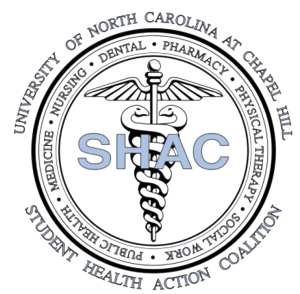 By Bobby Hundley, UNC Health Foundation
By Bobby Hundley, UNC Health Foundation
For more than 50 years, UNC’s Student Health Action Coalition (SHAC) has provided free health services to uninsured and underinsured families seeking care. In addition to providing clinical care for the local community, SHAC collaborates with communities to develop and implement sustainable programs to improve the health and wellness of vulnerable populations.
As the nation’s oldest student-run free clinic, SHAC has long been a path for students across the health sciences schools to find their passion in healthcare. That has certainly been the case for Alia Capone and Akshatha Kiran, two UNC School of Medicine students who are currently serving as SHAC CEOs.
“My experience with SHAC helped me choose family medicine,” Capone said. “Working in the community and advocating for marginalized groups is so integral to being a primary care physician.”
“At SHAC, I really saw the potential for getting to use our clinical training as a lever in advocacy for our patients,” Kiran said. “I wanted to learn more about what advocacy and supporting health equity looks like in practice. (Working with SHAC) has really been the most defining experience of my time here so far, so I’m really excited to see how I’m able to apply these lesson and see what other challenges come forward over the next two years in my time at UNC.”
And while the SHAC clinic is now seeing patients at a rate similar to pre-pandemic levels, the group is expanding its reach by going directly to the community. In partnership with UNC’s Eshelman School of Pharmacy, SHAC volunteers are providing blood pressure and blood sugar monitoring, lifestyle modification counseling and medication reconciliation services.
Other new programs allow patients to receive care in a more holistic manner. SHAC’s Social Needs Navigators ensure that patients receive the support they need, whether related to food insecurity, safe housing, financial assistance, mental health, transportation or insurance. The Gender Affirming Care Clinic provides patients with a safe haven to receive culturally humble, gender-affirming care as well as access to additional resources or referrals that may be necessary. This year, SHAC implemented a new training to equip all student providers with the skillsets necessary to provide gender affirming and inclusive care to all patients.
“Our training program has been very successful – 120 students have been trained since May 2021 and we have several trainings planned throughout each semester,” Capone said. “It’s something that we are really proud of.”
Providing Quality Access In a Resource-Limited Setting
A primary focus of SHAC is ensuring that all who utilize its services are met with high-quality care, despite challenges facing both patients and providers. For Kiran, it’s a key driver of what makes SHAC so special.
“Managing quality at a student-run free clinic is really important,” Kiran said. “Despite having to navigate the challenges that come with (working in a resource-limited setting), we really strive to ensure that we are able to provide the best quality care that we can to our patients.”
To that end, SHAC has dedicated resources to collecting data on how the clinic is performing and how it can improve. These metrics include both quantitative measures, such as uptake of offered services and numbers of referrals and follow-up visits, and qualitative analysis through talking to their patients.
“We really strive to ensure that our patients are not only receiving care but are understanding both their conditions and the treatment options that are at their disposal to receive the best care possible,” Kiran said.
A Stronger Future Through Donor Support
While SHAC is an incredible resource for both the School of Medicine and the Orange County community, funding constraints limit the organization’s reach. With additional donor support, SHAC leaders hope to expand services and outreach. Examples included additional advertising in and around Chapel Hill, a syringe exchange program and the establishment of a community advisory board.
For a volunteer-run organization like SHAC, donor support is truly vital to allowing both volunteers and patients to thrive. And it’s something that all who are involved are truly grateful to have.
“It really is what keeps the wheels turning for our organization,” Capone said. “We really appreciate any support (donors) give.”
To learn more about how to support SHAC, contact Mary Liz Entwistle at maryelizabeth_entwistle@med.unc.edu or visit https://www.med.unc.edu/shac/donate/.
To watch SHAC’s Tar Heal Tuesday webinar featuring Alia Capone and Akshatha Kiran, see below.
